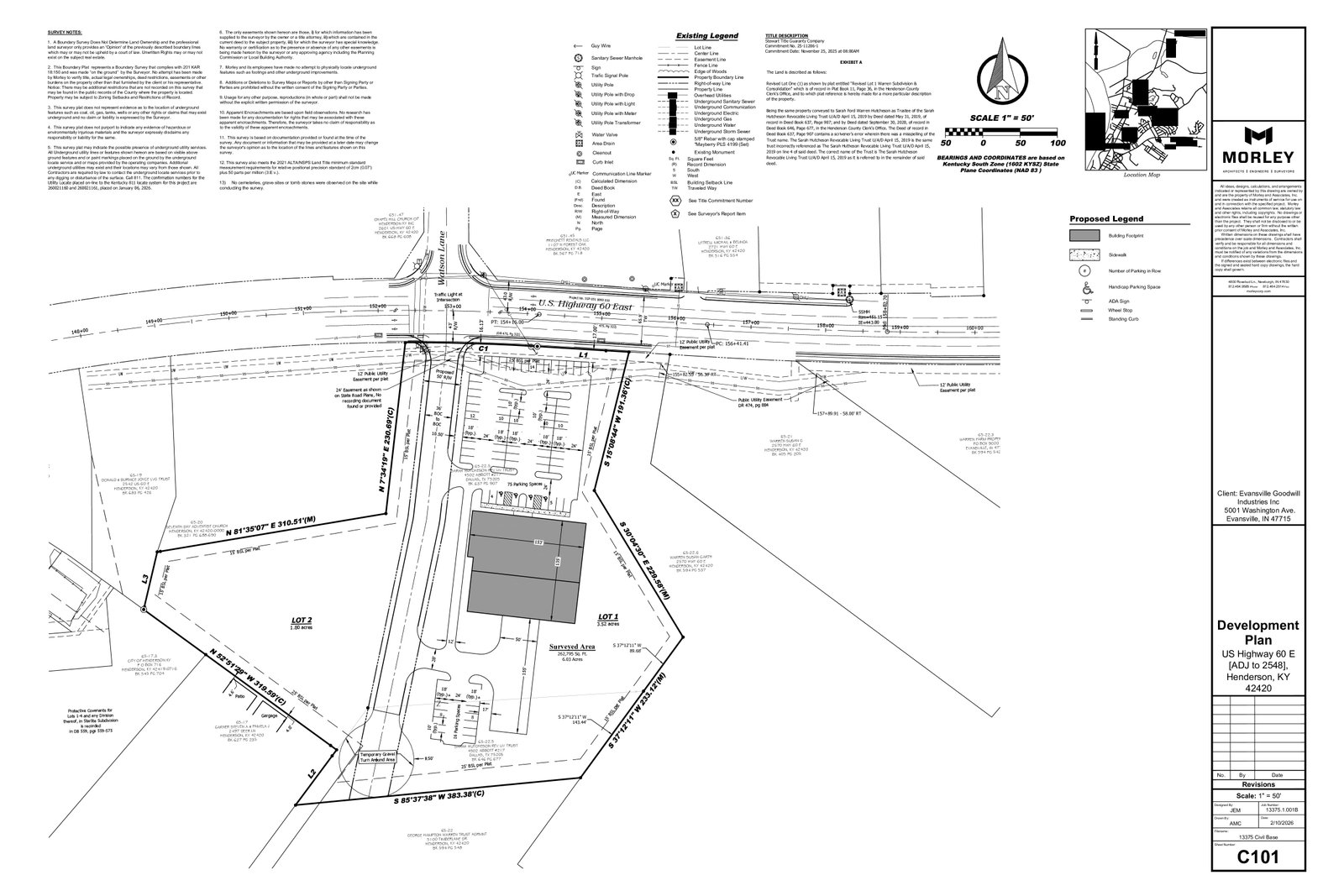Courtesy of Kentucky Lantern
State lawmakers are recommending that the General Assembly continue to ease regulations for housing developers and strongly consider funding to incentivize housing and infrastructure construction as Kentucky grapples with a significant housing shortage.
During a Monday meeting, a couple of lawmakers on the Kentucky Housing Task Force emphasized the urgency of the shortage as the panel released recommendations ahead of the legislative session beginning in January.
A national research firm hired by the Kentucky Housing Corp. estimated last year the state needs more than 200,000 housing units, including rentals and homes for sale. The gap could grow to over 287,000 units by 2029 without efforts to build or repair housing, the study said, with low-income renters being particularly squeezed by the growing shortage.
Rep. Mike Clines, R-Alexandria, told his colleagues the legislature must act. “I do think it’s time for us to really write some legislation that’s going to make some changes for our housing shortage,” Clines said.
The nine-page memo of recommendations, created after four prior meetings of the task force that began this summer, recounted gathering input from a number of groups including the Kentucky Chamber of Commerce, the libertarian think tank Mercatus Center, the Homebuilders Association of Kentucky, the conservative advocacy group Americans for Prosperity and the Homeless and Housing Coalition of Kentucky.
Most of the recommendations to lawmakers for the 2026 legislative session, when a two-year state budget will be crafted, focused on regulatory changes that seek to lower the cost of housing construction by either encouraging or mandating state and local governments “eliminate barriers” to building new homes.
Those regulatory recommendations include:
- A two-year moratorium on any changes to state building and electrical codes “that would result in any increase to construction costs of residential units.”
- Allowing regulated third parties to issue permits for housing construction in lieu of the state.
- Recommending that local laws requiring a certain number of parking spots for housing developments “be reduced or eliminated entirely.”
- Various changes to the state building code that would “reduce costs to homebuilders.” One recommended change includes requiring only one staircase in multi-family and apartment buildings, the memo arguing that the cost is “exorbitant” to require additional staircases in larger housing developments “while any safety benefit is likely negligible.”
- Allowing religious institutions to build housing on their own land with less regulation, pointing to a bill filed, but not passed, in this year’s legislative session that aimed to do that.
The lawmakers on the task force write in their memo that the regulatory changes would build on bills signed into law during this year’s legislative session such as a law that prevents local governments from implementing certain restrictions on manufactured housing.
Sen. Robby Mills, R-Henderson, a co-chair of the task force, in a Lantern interview after the meeting said a large debate before the legislature is how far the state government will go in telling local communities how to regulate housing construction. Mills said he generally supports local government control but that “we’ve got to get active in building residential units.”
“We’ve got to allow more building to take place in Kentucky. And if it doesn’t happen then we need to step in, or we’re going to be, once again, falling behind,” Mills said. “I do believe the locals need to have an opportunity to act and react.”
The task force recommends allowing local governments to establish “districts” within their boundaries where housing developers and local governments would be incentivized to build.
The task force is also calling for lawmakers to strongly consider throwing state funding at the issue, especially to establish a revolving loan fund for housing infrastructure similar to a fund in Indiana and to create a state low-income housing tax credit to match an existing federal tax credit.
Adrienne Bush, the executive director of the advocacy group Homeless and Housing Coalition of Kentucky, said she’s overall “pretty pleased” with the memo, including a recommendation that would increase the real estate transaction fees that go toward the state’s Affordable Housing Trust Fund that subsidizes housing construction.
“We have this proven tool. It’s been working well for Kentucky,” Bush said, referring to the fund. “It just really hasn’t kept pace with what is needed to build and repair and renovate.”
Bush said that “housing is fundamental” despite potential budget constraints. Republican legislative leadership is projecting a more challenging state budget due to federal funding uncertainty, and Democratic Gov. Andy Beshear has said his administration is making adjustments after state revenue came in below projections for the last fiscal year.
“It is becoming clearer, clearer and clearer every day that without state financial intervention, Kentucky is going to continue to fall further and further behind in terms of our housing stock,” Bush said.
As the state budget is crafted, Mills said, a lot of things will “fall on the cutting floor because of the cost of Medicaid and other large ticket items.” He said he still planned to encourage his fellow lawmakers to put money into incentivizing affordable housing construction.
Kentucky Lantern is part of States Newsroom, the nation’s largest state-focused nonprofit news organization.



















